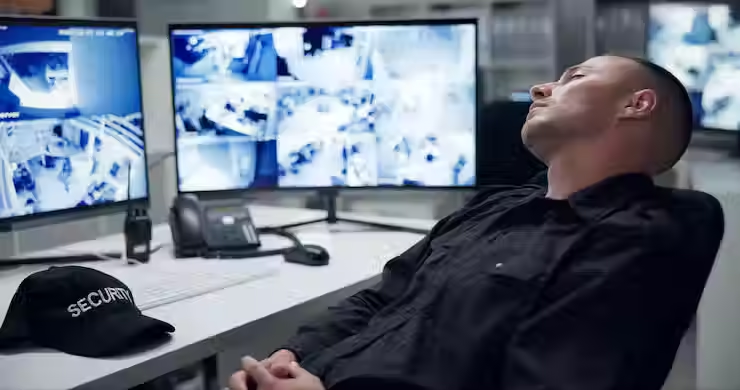Doing Things Right: Why Team Discipline Matters in the Private Security Industry
- James Consulting

- Aug 23, 2025
- 4 min read
In the private security industry, professionalism isn’t a luxury, it’s a necessity. The stakes are too high for complacency, shortcuts, or egos. Whether you're a CPO on the ground, working as part of a residential security team, or even working event security, the ability to do things right, especially within a team, can mean the difference between safety and failure.
In this post, we explore why doing things right matters so much, not just from a technical standpoint, but from a leadership, safety, and team cohesion perspective.

1. Discipline Is the Bedrock of Teamwork
In any team-based environment, particularly in high-stakes security operations, discipline isn’t about rigidity, it’s about reliability. Doing things right means sticking to agreed SOPs (Standard Operating Procedures), maintaining situational awareness, and showing up prepared, every time.
A disciplined team functions like a well-oiled machine. Each member understands their role, executes their responsibilities, and trusts others to do the same. The moment one person cuts corners or breaks from the plan, the entire operation is compromised. It’s a domino effect, one lapse in judgment can unravel hours of planning.
Discipline ensures:
Predictable behavior in unpredictable scenarios
Trust between team members
Confidence from clients and principals
2. Professionalism Builds Trust, Internally and Externally
Security professionals are often in close proximity to high-net-worth individuals, sensitive information, or vulnerable environments. In such situations, trust isn’t just an added bonus, it’s the currency of your reputation.
Doing things right, from following communication protocols to maintaining a professional appearance, helps reinforce the image of competence and control. This image matters not only to clients and the public, but within your own team. When everyone is consistent, dependable, and polished, mutual respect grows.
Professionalism includes:
Respecting chain of command and briefing structures
Showing emotional intelligence, particularly under stress
Adhering to legal boundaries and ethical standards
A team that trusts each other works better together. In the private security industry, that cohesion is critical, and easily lost.
3. Mistakes Are Magnified in Close Protection
In other industries, mistakes can be corrected with a memo or a meeting. In private security, particularly in protective roles, mistakes have real-world consequences: injuries, legal liability, reputational damage, or even loss of life.
Doing things the right way, every time, means less margin for error and greater situational control. It means doing the dull, repetitive checks. It means knowing your exits, testing your comms, understanding your client’s needs, and rehearsing scenarios.
And it also means challenging teammates (respectfully) when they fall short. In security, silence isn’t golden, it’s dangerous.

4. Ego Is the Enemy of Good Security
Security work attracts individuals with confidence, and rightly so. But unchecked ego is a threat to cohesion. A team where members don’t listen to one another, override decisions without discussion, or refuse feedback becomes a liability.
Doing things right as a team means:
Accepting constructive criticism
Following instructions from the team leader or detail commander
Placing mission and safety above personal pride
Remember: the best operatives aren’t the loudest or flashiest. They’re the ones who are consistent, dependable, and invisible when needed.
5. Small Errors Lead to Big Problems
In the field, it’s rarely one big mistake that causes a failure. It’s a string of small oversights:
Forgetting to radio check before a move
Not confirming the route or timing changes
Wearing inappropriate attire that draws attention
Failing to communicate changes to the team
These are small things, until they aren’t. Doing things right means mastering the basics so thoroughly that they become second nature. It means treating the small things as if they are big things, because in this industry, they often are.
6. Clients Notice More Than You Think
Clients may not be experts in tactical security, but they know professionalism when they see it. When a team communicates clearly, moves smoothly, and handles incidents with calm authority, clients feel protected.
On the flip side, when team members bicker, miss briefings, or ignore instructions, clients lose confidence. And in an industry built on reputation and referrals, that’s a cost you can’t afford.
Doing things right enhances client satisfaction, reinforces your value, and ensures future business.
7. Doing Things Right Is a Culture, Not a Checkbox
Ultimately, doing things right isn’t about ticking boxes. It’s a mindset. A culture. A commitment that must be modelled by leaders and embraced by every team member.
This includes:
Pre-deployment rehearsals
Open debriefs after operations
Ongoing CPD (Continuing Professional Development)
Holding each other accountable
Strong teams build strong habits. They don’t rise to the occasion, they fall back on their training. And that training only works if the standard is maintained, every time.
Final Thoughts
In private security, the margin for error is thin and the consequences are real. Doing things right, consistently, collectively, and without compromise, is the only way to protect what matters most: life, reputation, and operational success.
So whether you’re new to the industry or a seasoned professional, take a moment to reflect on your standards, your team’s cohesion, and your role within it. Are you doing things right or just doing enough?
Because in this world, “good enough” isn’t good enough.
Interested in more insights like this? Subscribe for weekly briefings on private security standards, leadership, and operational excellence.








Comments